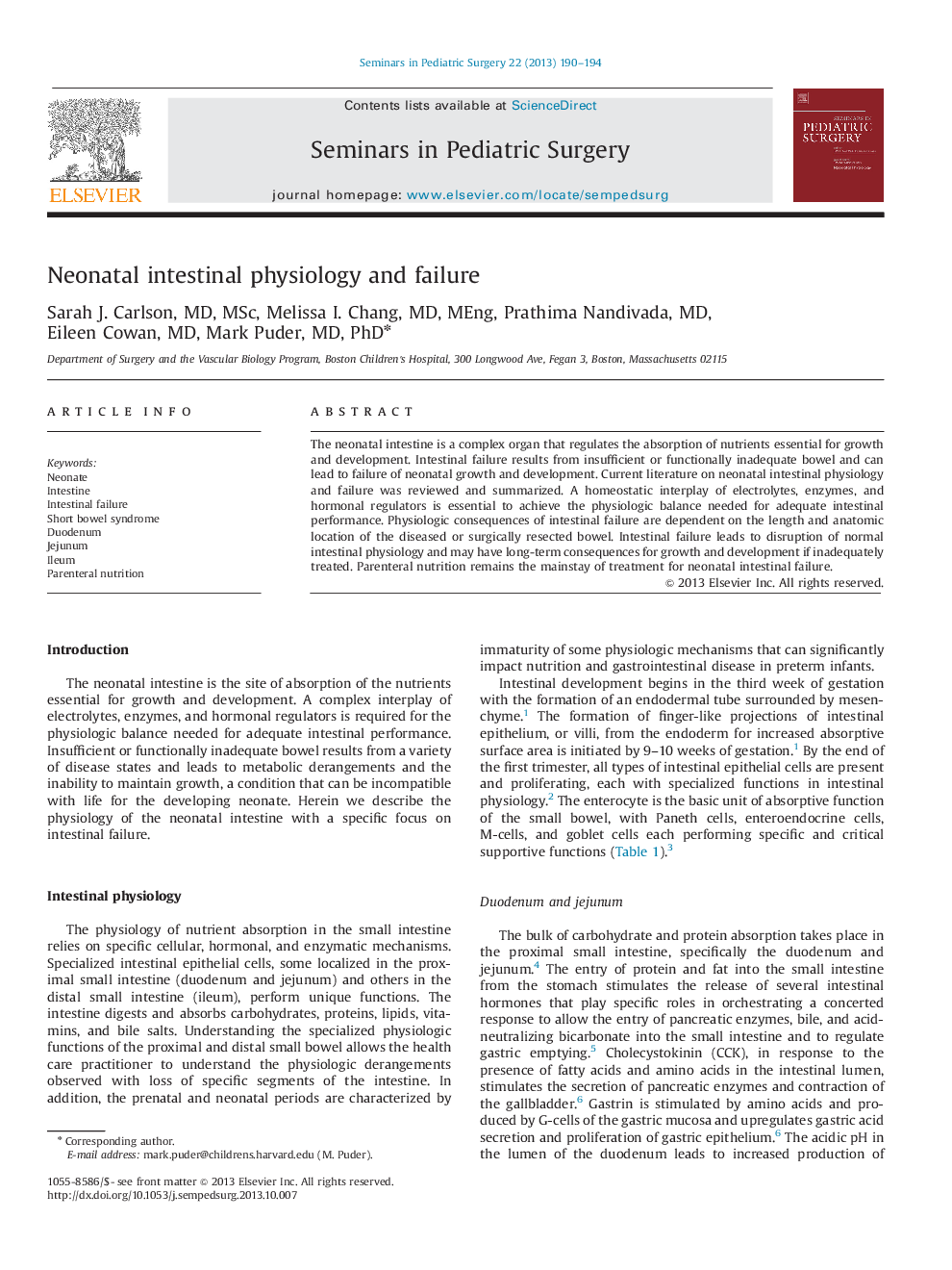| کد مقاله | کد نشریه | سال انتشار | مقاله انگلیسی | نسخه تمام متن |
|---|---|---|---|---|
| 4176618 | 1276311 | 2013 | 5 صفحه PDF | دانلود رایگان |

The neonatal intestine is a complex organ that regulates the absorption of nutrients essential for growth and development. Intestinal failure results from insufficient or functionally inadequate bowel and can lead to failure of neonatal growth and development. Current literature on neonatal intestinal physiology and failure was reviewed and summarized. A homeostatic interplay of electrolytes, enzymes, and hormonal regulators is essential to achieve the physiologic balance needed for adequate intestinal performance. Physiologic consequences of intestinal failure are dependent on the length and anatomic location of the diseased or surgically resected bowel. Intestinal failure leads to disruption of normal intestinal physiology and may have long-term consequences for growth and development if inadequately treated. Parenteral nutrition remains the mainstay of treatment for neonatal intestinal failure.
Journal: Seminars in Pediatric Surgery - Volume 22, Issue 4, November 2013, Pages 190–194